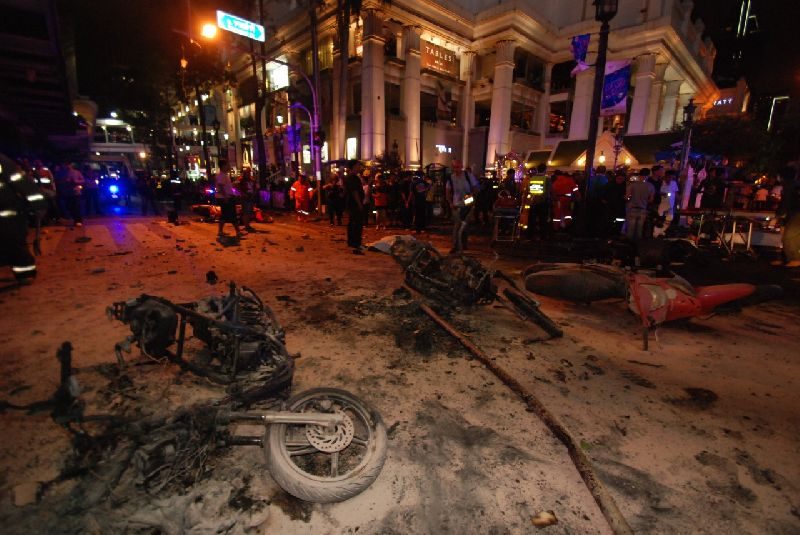Looking at the lists of dead and injured, the human toll of last night’s bombing at the Erawan Shrine in Bangkok is clear. It is a distressing situation: seemingly designed to sow maximum havoc in the heart of the city.
In different ways, many New Mandala readers will have been touched by these events. Our condolences to the families of the dead and our sympathy for all those who were injured. It is a heart-breaking scene.
At times of such confusion, there are no immediate answers to questions about who, what and why. Investigators are no doubt mobilising all available resources to ascertain what has happened. The authorities will move quickly to get answers.
In the meantime there will be speculation about everything.
First of all, no matter who is involved, for a short period this attack will draw more attention to Thailand’s long-running war in the southernmost provinces. That conflict continues to fester, receiving only sporadic mention in the international media. Even many Thais have long since disengaged from what must feel like an unending series of violent incidents. One of the latest is the killing of a Thai Ranger at his own wedding. Until we know otherwise, there will be speculation that the conflict from those provinces has spread.
Second, there will also, no doubt, be concern about the prospect that more globally-focused terrorist forces are involved. In 2012 Bangkok was the scene of such a plot. There has long been insinuation about the safe haven that some Islamists have found in Thailand. Many people still remember the arrest of Jemaah Islamiya operational commander, Hambali. Thailand is, of course, embroiled in all manner of contentious international situations, including the recent repatriation of Chinese Muslims. Given the broader international context, there will certainly be discussion of how Thailand fits into the battle between Islamists and their opponents.
Third, the attack will draw renewed focus to Thailand’s own messy politics. Given all of the ill-will between different factions in Thai society there will be the need to eliminate the possibility of their involvement. Previously Thai political conflict has bounced along without mass casualty attacks of the type that are familiar elsewhere in the world. Most of the deaths in the battle between reds and yellows have been shootings. If that has changed then Thailand faces a range of new problems.
Today everyone is scratching their heads wondering who is involved and what this violence will mean. The military regime that has been in-charge since May 2014 faces its biggest test. People in Thailand and beyond will be demanding justice.
Nicholas Farrelly is the co-founder of New Mandala and a Fellow at the Bell School of Asia Pacific Affairs, The Australian National University
 Facebook
Facebook  Twitter
Twitter  Soundcloud
Soundcloud  Youtube
Youtube  Rss
Rss 